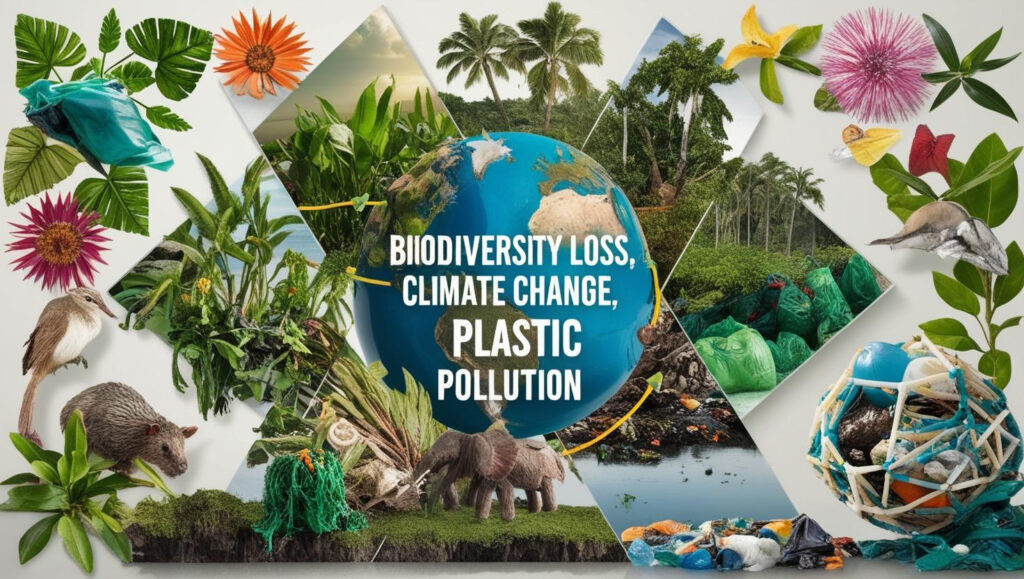
Interlinked crises of biodiversity loss, climate change, food and health insecurity and pollution require interlinked responses, now!
This was the main key message of the latest Intergovernmental Platform on Biodiversity and Ecosystem Services (IPBES) report titled “Nexus Assessment” released last week, which emphasises the urgent need to think and act holistically instead of making separate efforts to address these crises.
The interlinked crises, the report says, “interact, cascade and compound each other in ways that make separate efforts to address them ineffective and counterproductive.” Humanity’s response to these interlinked crises have not accounted for the complexity of the challenge, and thus result in inconsistent, piece-meal governance of these problems, the report states.
Key Messages from the IPBES Report
- The Nexus report addresses the interconnected global crises of biodiversity loss, water and food insecurity, health risks and climate change.
- The interlinked global crises have unequal impacts on the world, thus require inclusive decision-making.
- Continuing business-as-usual trends poses severe risks to biodiversity, water quality, and human health.
- Over half of the global GDP—amounting to more than $50 trillion in annual economic activity—is moderately to highly reliant on nature.
- The authors propose over 70 response options across 10 action categories to synergistically manage nexus elements.
The report was the outcome of a three-year collaboration between 165 leading international experts from 57 countries. The contributors of the report claim to have conducted a very “ambitious scientific assessment” ever of the interlinked crises and their corresponding responses, detailing more than “five dozen specific response options to maximise co-benefits” across the nexus elements of biodiversity loss, climate change, food and health insecurity and pollution.
Interestingly, the report echoes United Nation Environment Assembly’s (UNEA), the world’s apex decision-making body on environment, rallying call at its sixth meeting in Kenya earlier this year for global actions to tackle the triple planetary crises of biodiversity loss, climate change and pollution.
Instrumental as they are, the two global events – the UNEA-6 and the IPBES report launch – call to attention interlinkages between the crises and urge interlinked, contextual responses. On one hand, the UNEA-6 acknowledges the interlinked crises, and specifically focuses on multilateral diplomacy and governance measures to achieve solutions. On the other hand, the IPBES Nexus Assessment report pays explicit attention to not only the interconnectedness of the crises but, crucially, also the need for interconnected responses.
The only difference between the two events, the UNEA-6 and IPBES report launch, is the latter’s explicit focus on interconnected responses for the interlinked crises.
To know more about the IPBES report, view their press release here.
